Drug Addiction Treatment in Bourne
Bourne drug rehab for in-patient and out-patient drug detox and alcohol treatment. Addiction and chemical dependency recovery program near Bourne MA. Drug and Alcohol Rehabilitation techniques used in our Barnstable rehab and detox centers near Bourne. Programs for drug and alcohol abuse that include inpatient and outpatient recovery for addiction are explained as well as the benefits and drawbacks of both. Many health insurance providers will pay for alcohol and drug rehab. Call us to find out what options are available for you.
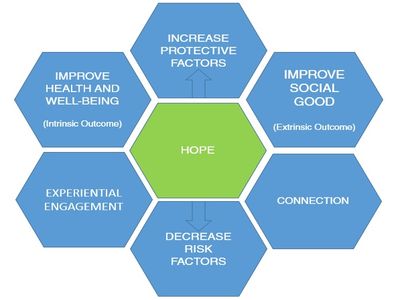
Mental Dependency – What Is Psychological Reliance?
The term psychology is usually implied to refer to behavior procedures that associate to the feelings or the mind. The term emotional dependence is normally suggested to define the emotional and psychological procedures that are linked with the advancement of, and healing from, a material use condition or drug addiction.
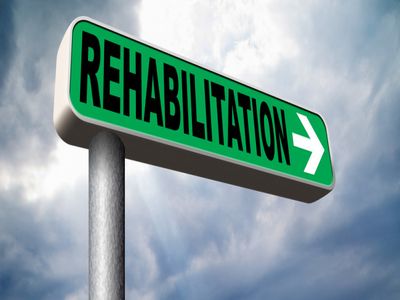
Compounds associated with Mental Dependence
The general observation here is that materials of abuse are connected with both psychological as well as physical elements of dependency; however, several sources separate the facets of the growth of a substance usage problem and the withdrawal procedure into substances that are associated with withdrawal signs and symptoms that are primarily emotional in nature. Normally, these substances consist of:
A lot of stimulants, consisting of drug and also Ritalin
A lot of hallucinogenic medications, such as LSD
Marijuana products (although there is installing proof that there could be a substantial physical process of withdrawal that takes place in chronic individuals of marijuana items).
Several inhalant items.
Lots of psychotropic medications, such as antidepressant medications.
Reward of emotional dependency
One very important distinction that could be made pertaining to the difference in between medicines that are thought about to result in physical versus emotional dependence is that the withdrawal procedure from several of the drugs that are thought about to be strong prospects for physical reliance, such as alcohol, benzodiazepines, and also barbiturates, can result in the growth of potentially fatal seizures. This condition does not typically take place with withdrawal from opiate medicines, which are also taken into consideration to be incredibly physically addictive. The recovery procedure for individuals who have actually developed compound usage conditions to these materials ought to be strictly monitored by a doctor or psychiatrist that specializes in dependency medicine to determine any type of prospective seizure activity and also immediately address it.
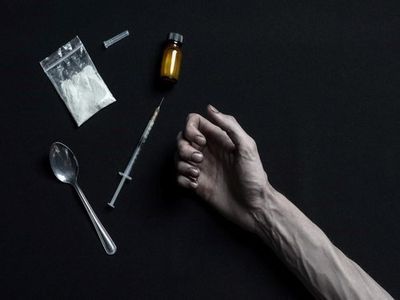
Types of Treatment in Bourne
Medicines
Numerous medications have actually been found to be efficient in dealing with dependency to opioids, alcohol, or pure nicotine in adults, although none of these medications have actually been accepted by the FDA to treat teens. Newer compounds continue to be examined for potentially treating compound usage problems in adults and also adolescents, but none other than those listed here have revealed conclusive outcomes.
Note that there are currently no FDA-approved drugs to deal with dependency to cannabis, drug, or methamphetamine in any type of age group.
Buprenorphine reduces or eliminates opioid withdrawal signs, consisting of medicine food cravings, without creating the “high” or hazardous adverse effects of heroin and other opioids. It does this by both turning on and obstructing opioid receptors in the mind (i.e., it is what is referred to as a partial opioid agonist).

Methadone additionally protects against withdrawal signs and symptoms and also minimizes craving in opioid-addicted people by triggering opioid receptors in the mind (i.e., a full opioid agonist). It has a long background of usage in treatment of opioid reliance in adults as well as is offered in specifically licensed methadone therapy programs. In pick cases and in some States, opioid-dependent teens between the ages of 16 and 18 may be qualified for methadone treatment.
Residential Drug Rehabilitation in Bourne
A research in the journal Addiction reveals that individuals that receive assist with recuperation from addiction are most likely to remain in recuperation for longer durations than those who don’t receive treatment. Sixty-two percent of those that had specialist assistance in treating their addiction stayed in recovery for three years after treatment, as compared to just 43 percent of those who really did not get therapy. Furthermore, 57 percent of those who made it three years were still free of the material after a total of 16 years. This shows that obtaining expert treatment is vital to reaching the very best end result.
Residential Bourne drug rehab specifically is typically much more helpful due to the fact that it requires that the individual remain in therapy for the quantity of time essential to impact modification.
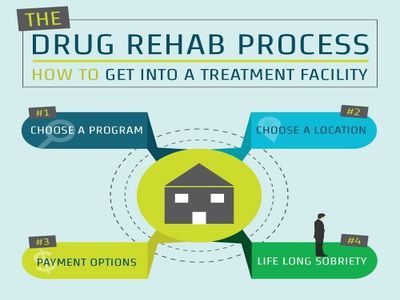
In the NIDA write-up it is specified that a necessary aspect of drug dependency therapy is staying in therapy enough time to finish the different elements of the program, since this makes it possible for people to emerge with the highest degree of confidence in their newly found out abilities and also tools for continuing to be in recuperation. Due to this, each of the parts of a top quality therapy program works best when it is made to help people survive the entire treatment procedure.
Residential rehab gives 24-hour care in a setup where the focus is assisting individuals achieve and also keep recovery from drug addiction. Because of this, these programs are able to use a breadth of solutions that are most likely to assist clients create abilities and also tools to stay in recuperation well after leaving the program. These include:
Medically sustained detox as well as withdrawal, if required.
Clinically sustained maintenance care, if required.
Private therapies, such as Cognitive Behavioral Therapy.
Household or couples therapy.
Building abilities as well as tools that are required permanently article therapy.
Follow-up care after the defined program ends.
Outpatient Treatment
Outpatient rehabilitation enables customers to live in your home as well as participate in treatment at an outpatient facility throughout the daytime. This kind of program pays for individuals extra flexibility in therapy, providing customers the capability to preserve a job as well as stay on par with daily duties in your home. Those simply beginning outpatient care may need daily sessions with a therapist or professional personnel, while those further along in healing (or with less extreme dependencies) could achieve success with part-time sessions one or two times weekly.
Outpatient programs usually last anywhere from one to three months, as this is the window of time in which those in recuperation are most prone to relapse. The length of time a customer invests in outpatient care depends on their development in recuperation, which takes into consideration their mental security and also physical health and wellness.
An outpatient drug rehab program offers alcohol and drug therapy sessions that can be set up during different times throughout the week. This schedule permits clients to proceed with their regular responsibilities and also continue living in the house, however they are needed to explore therapy at their designated times for therapy and also drugs.
Recuperation
Recovery is a goal of alcohol treatment, as well as recovery-oriented systems of care are being established to support that goal. Individuals who are “in recovery” know exactly what it means to them and also how essential it is in their lives. They need no official definition, however, for the public and those who research, review, and also establish policies about dependency, recovery is a concept that can sometimes appear uncertain.
Basically, healing is a complicated and also vibrant process including all the positive advantages to physical, mental and social health and wellness that can take place when people with a dependency to alcohol or medicines, or their family members, obtain the aid they require.
Therapy
Counseling is a vital part of drug abuse treatment for many individuals. Cognitive behavioral therapy, household therapy, and other treatment techniques can assist individuals recovering from opioid addiction stay clean.
12 Step Programs
The 12-Step viewpoint pioneered by Alcoholics Anonymous is used by about 74 percent of therapy. Lots of addiction treatment programs supply alternatives to 12-Step method for those who favor a more nonreligious structure for therapy.
SMART Healing
SMART Recovery is an abstinence-based, not-for-profit company with a practical self-help program for individuals having problems with drinking and also utilizing. It includes lots of concepts and also methods to assist you alter your life from one that is self-destructive and also dissatisfied to one that is useful and satisfying. SMART Recuperation is not a spin-off of Twelve step programs. No person will identify you an “alcoholic”, an “addict” or “diseased” nor “helpless”, as well as if you do not count on a religion or spirituality, that’s fine, too. We show good sense self-help treatments developed to equip you to abstain as well as to develop a much more positive way of living. When you do well at following our strategy, you could finish from the program, or you may remain around to help others.
Client-centered methods
In client-centered chemical abuse treatment, you can help made a decision features of your drug dependency therapy strategy including:
- The rate at which you progress.
- The length of your keep.
- The objectives of your program.
Alongside expert team the addict establishes specifically what they wish to get out of their stay. Each week, you as well as your personal specialist will certainly evaluate your medicine addiction therapy and choose whether you are reaching your goals, failing or exceeding them and adjust your treatment plan accordingly. The partnering is really important below- your objectives are your roadmap via therapy.
Psychoanalysis
The psychoanalysis sight suggests dependency is basically a condition of self-regulation. Addiction is called a protective strategy to prevent sensation of helplessness or powerlessness. Substance abuse is a useless attempt to make up for internal emptiness without success. The addict aims to make up through addicting habits for uncomfortable subjective states of low self-esteem, questions and anxiety. The use of medicines supplies a feeling of approval and sensation of momentary sure of oneself. Addict substitutes a fictional world, where he remains in total control, for the real world, where he feels worthless and out of control. Duplicated use drugs to get alleviation becomes a lifestyle. Alleviation is short-lived, however in the long-lasting drug use becomes an end in itself. The addiction problem protects against the individual from recognizing regarding her distress, along with the development of psychological ability to self-soothe.
Regression avoidance
A prominent cognitive-behavioral strategy to addiction recuperation as well as treatment has been Alan Marlatt’s (1985) Regression Avoidance approach. Marlatt explains four psycho-social processes relevant to the dependency and relapse procedures: self-efficacy, outcome spans, acknowledgments of origin, as well as decision-making procedures. Acknowledgments of origin refer to a person’s pattern of ideas that relapse to drug usage is a result of internal, or instead exterior, transient causes (e.g., allowing oneself to make exemptions when faced with exactly what are judged to be uncommon situations).
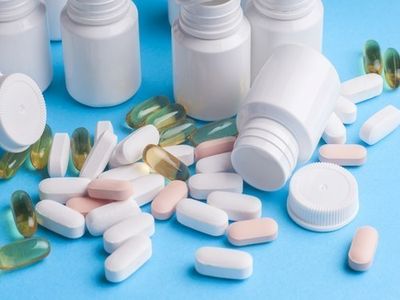
As a result of hefty traffic, a recovering alcoholic might make a decision one afternoon to leave the freeway and also traveling on side roadways. If this person is able to use effective coping techniques, such as distracting himself from his cravings by transforming on his preferred songs, after that he will certainly prevent the relapse risk (PATH 1) as well as heighten his efficiency for future abstaining. If, however, he lacks coping mechanisms- for instance, he may start pondering on his food cravings (COURSE 2)- after that his effectiveness for abstaining will certainly lower, his assumptions of positive end results will enhance, as well as he might experience a gap- an isolated return to material intoxication.
Dual Diagnosis – Addiction and Mental Health
When a client is identified with both a drug abuse problem and a mental health and wellness issue, after that it is called a Dual Diagnosis. Common mental health and wellness problems that tend to take place alongside addiction consist of:
- Anxiousness problems.
- Moderate to serious clinical depression.
- Character problems.
- State of mind disorders.
- Schizophrenia.
In most cases, symptoms of the mental health problem appear first. As they come to be increasingly more frustrating, the client might try to “treat” those symptoms by utilizing different medicines. An individual that struggles with depression might attempt to boost their mood by taking heroin or prescription medicines. People who are coping with anxiety might aim to relax themselves by cigarette smoking cannabis. Alternatively, somebody dealing with an eating condition might try to further their fat burning efforts by abusing stimulant medicines like cocaine or crystal meth.
In other situations, the medicine dependency precedes and also as a result of chronic substance abuse, mental wellness concerns can establish later on because of that drug use modifies brain function with time.
Sober Living House
Sober living residences are group houses for those recouping from a dependency. The majority of these residences are independently owned, although some group houses are owned by services as well as might also be had by charity organizations. Homes are generally found in peaceful locations to help guarantee a calm atmosphere for individuals in very early recuperation.
These types of residences are various from rehabilitation centers; rehab facilities generally supply a more intensive recovery experience as well as offer locals less flexibility. People that stay in sober living centers can usually come and go as they please as long as they adhere to particular regulations. Sober living houses might call for homeowners to be home by a specific time or to go to work throughout the day. Residents might also undergo periodic drug screening to demonstrate recurring sobriety.
